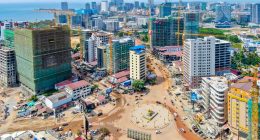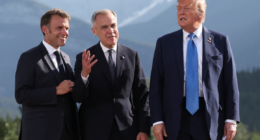By Dahir A. Issa
In 2016, when Puntland agreed to the current electoral model after initially rejecting it on grounds that one person, one vote elections outlined at the end of the transition agreement had been jettisoned, Michael Keating, the former UN Representative to Somalia, urged political leaders to start preparations for one, person elections “now”.
In 2017, the former Speaker of the Somali Parliament Mohamed Jawari held a meeting with a committee tasked with preparing Somalia for 2021 elections. “We have to be honest with our people and make it clear now if we are unable to hold one person, one vote elections. This clarity will spare the nation political uncertainty and disagreements over elections” said Jawari.

But why did Puntland and Jubaland reject the one person, one vote elections promulgated in the Electoral Law?
What Jawari was emphasising in his historic speech is the political agreements that provide a basis for any decision on elections in Somalia.
Puntland and Jubaland had a goal in mind when they rejected a compromise over an electoral deal that they agreed in September 2020: to argue with the incumbent Federal President that his term in office ended without an electoral agreement in place.
To some extent they have attained this goal.
What they have undermined is the foundation of the federal system of Somalia.
Puntland is in a territorial dispute with Somaliland whereas Jubaland, known for clan diversity, has an interim administration with a shorter tenure than the incumbent President of the Federal Member State claims.
The Union of Somali Presidential Candidates has not resorted to rhetoric to urge President Mohamed Abdullahi Mohamed to resign.
Dr Abdirahman Baadiyow, a former advisor of the Somali Prime Minister, called on President Mohamed to compromise. Baadiyow devised and promoted the one person, one vote electoral plan that has been replaced by an indirect elections’ agreement. It was clear to many that one person, one vote elections would be rejected by some Federal Member States that feel threatened by the legislative clout of the bicameral legislature.

Jubaland President Ahmed Mohamed Islam and Puntland refer to President Mohamed as “the President whose tenure is about to end”. The Draft Constitution stipulates that only an elected parliament can replace the current parliament.
The decision of President Mohamed to consult the MPs merits support.
The Gedo region question might break up Jubaland.
In 2013, Gedo was incorporated into the short-lived six region state founded in Baidoa. Demonstrations held in Gedo districts in opposition to the Jubaland President reflect how deep the political disagreements over Jubaland political institutions are.
Jubaland views Somali National Army troops deployed in Gedo as a politicised move by the Federal Government of Somalia.
In an atmosphere of political distrust this suspicion runs counter to efforts to gradually transfer the security to Somali forces when the AMISOM mandate ends. It is the fear of some Federal Member States that a centrally commanded Somali Army may subdue any administration that challenges the authority of the Federal Government.
The outgoing British Ambassador to Somalia, Ben Fender, deplored the blocking of one person, one vote elections, and urged Somali political leaders to make compromises in the interest of the nation.
To break the electoral deadlock, a third party could organise and oversee elections in designated districts in Jubaland in line with the September 2020 agreement.
Jubaland and Puntland acted disingenuously to oppose the electoral agreement in an attempt to push a government whose mandate is to end soon into a corner.
It sends a wrong message to any level-headed Presidential Candidate.
Kismayo looks like a fiefdom controlled by an implacable enemy of any government based in Mogadishu.
This article first appeared in the Puntland Post and is republished with permission









